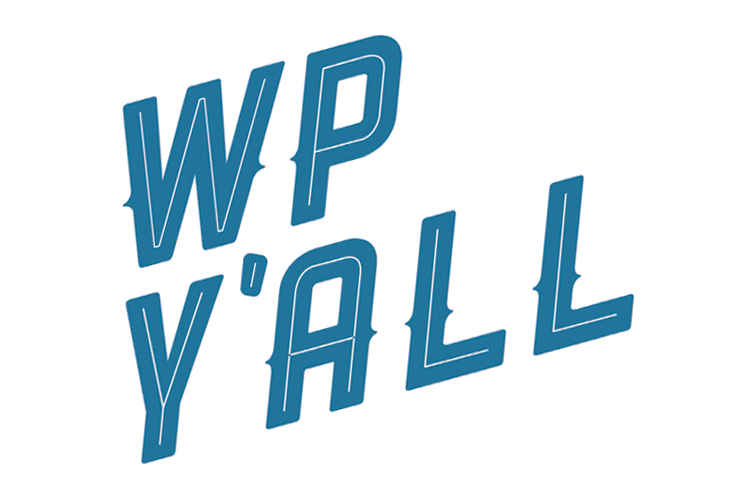
This past weekend (October 21-22), I attended the annual WordPress conference in Birmingham, Alabama: WordCamp Birmingham. You may be asking: If she’s in an MA program for Religion in Culture, why does she need to go to a WordPress conference? An important aspect of the program is a focus on digital and public humanities — how we convey our research through digital media and to unconventional audiences. Part of that focus results in developing digital skills like WordPress to present our ideas and ourselves professionally to the general public. In fact, building a WordPress site was the first project we tackled in REL 502: Public Humanities and Religious Studies.
The conference was set up to serve all levels of experience ranging from complete newbies to experienced programmers. It was designed with three types of sessions going on at once all day long: blogger, business, and developer. Within each room, there was a flow to the sessions that would aid people who went for only one of the tracks, but we were encouraged to jump around to whatever felt appropriate for our individual needs. I dabbled around in each of the categories, discovering that most of the newbie stuff I had down (even though I still can’t seem to figure out how to make comments work properly on my own site) and the vast majority of the programer/developer side of things went way over my head. As far as the business sessions? I only went to one because the rest really didn’t seem that applicable to me, at least in this stage of my online presence.
The regular sessions went from 9:00am to 4:30pm on Saturday. On Sunday, two workshop sessions were offered in the afternoon. Again, three choices were given for each and everyone was encourage to attend the one most appropriate for their needs. These workshops were less geared toward the three categories set out on Saturday. Instead, they offered ways to make everything we had learned the day before applicable to our own sites. In addition to the sessions and workshops, WordCamp offered a “Happiness Bar” where you could go at any time and get individual help with anything that you might be struggling with on your site. And of course, no conference would be complete without t-shirts, free stuff (stickers, pens, more t-shirts, etc.), food (lunch from McAllister’s, Frios Gourmet Pops, Margarita Grill), and prizes (I won a year of free hosting from Known Host).
My notes from this conference go on for more than 10 typed pages and I now have an incredibly long list of things to do based on what I learned. Here’s a taste:
- Explore ways to fix my comments problem
- Make my site accessible to individuals with disabilities
- Research things like: Jetpack, See Jane Write, and SEO
- Set up Google Analytics and Google Search Console for my site
- Consider participating in #bloglikecrazy this November
Of course, this list goes on and I’m sure I’ll be adding more as I become more aware of and acquainted with WordPress. For now, I’ve got plenty to digest. I learned what’s behind the screen of domain registration, what task runners were, methods to connect with an audience, how to rebrand when necessary, why SEO matters, and many more aspects of using WordPress.
WordCamp is definitely the kind of conference you could attend over and over again and always learn new things. And because there are conferences in several major cities throughout the year, there’s almost always one happening soon fairly nearby. I, for one, plan on going to the one in Birmingham again, and maybe even WordCamp Atlanta in April if I need a refresher before then.
Beyond gaining skills for my personal site, this conference helped me to explore questions about the more technical side of what a digital religious studies could look like. There are odd tidbits that will help along the way (like making sure that image has alt-text). But there are also larger themes that are still stewing in my brain. The next project we tackled in 502, Omeka, operates in a similar manner to WordPress and can work alongside it. As it turns out, WordPress can be used for so much more than just blogging.